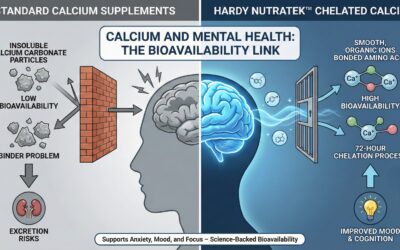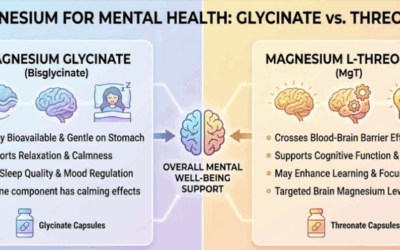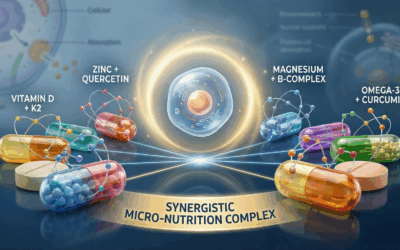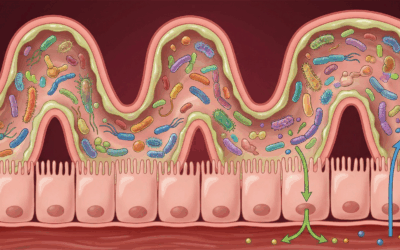Nutritional Approaches to Managing Pregnancy and Depression

Antenatal depression affects approximately 7-20% of pregnant women worldwide, creating significant challenges for both maternal and fetal health. While conventional treatments remain essential, growing evidence suggests that nutritional interventions may play a supportive role in managing depressive symptoms during pregnancy. The Dictionary of Supplements and Herbs for mental health provides a comprehensive overview of natural supplements that may benefit pregnant women experiencing depression.
The Role of Essential Nutrients in Pregnancy Mental Health
Pregnancy creates additional nutritional demands, with deficiencies potentially contributing to mood disorders. Research published in the Journal of Affective Disorders found that vitamin D deficiency during pregnancy was associated with increased depressive symptoms. Adequate vitamin D supplementation has shown promise in several clinical trials, with one study demonstrating a 50% reduction in depressive symptoms among pregnant women with prior deficiency.
The brain’s requirement for omega-3 fatty acids increases during pregnancy, as these essential fats support both maternal brain function and fetal neural development. Zinc and magnesium also play crucial roles, with research from the University of Toronto showing that adequate magnesium levels correlate with reduced anxiety and depressive symptoms in pregnant women.
B Vitamins and Folate: Critical for Neurotransmitter Function
The B vitamin complex is essential for neurotransmitter synthesis and regulation during pregnancy. Folate, in particular, has received significant attention in recent years. Beyond its well-established role in preventing neural tube defects, research published in the American Journal of Psychiatry suggests that adequate folate intake may reduce the risk of depression during pregnancy by up to 30%.
Vitamin B6 is another key nutrient that supports the production of serotonin and dopamine, neurotransmitters frequently implicated in mood regulation. A 2023 systematic review found that B6 supplementation produced modest but significant improvements in mood scores among pregnant women with mild to moderate depression.
Thiamin (Vitamin B1) and riboflavin support energy production in brain cells, which may be particularly important during pregnancy when metabolic demands increase substantially.
Adaptogenic Herbs With Safety Profiles During Pregnancy
While many herbs are contraindicated during pregnancy, some adaptogenic herbs have established safety profiles when used under professional guidance. L-theanine from green tea has been studied for its calming effects without sedation, making it potentially suitable for pregnant women experiencing anxiety with depression.
A small but promising study from Johns Hopkins University found that controlled doses of L-theanine reduced anxiety scores in pregnant women without adverse effects on maternal or fetal outcomes. However, more comprehensive safety studies are needed before routine recommendation.
Gut-Brain Connection: Microbiome Support During Pregnancy
The gut-brain connection has emerged as a critical factor in mood regulation, with particular relevance during pregnancy when hormonal changes can affect gut function. Lactobacillus and Bifidobacterium strains have shown potential in supporting mental health through the gut-brain axis.
A randomized controlled trial published in the British Journal of Nutrition demonstrated that pregnant women receiving probiotic supplementation reported lower anxiety and depression scores compared to those receiving placebo. These benefits may stem from reduced inflammation and improved nutrient absorption.
Anti-inflammatory Supplements for Mood Support
Chronic inflammation has been linked to depression, and pregnancy can trigger inflammatory processes in some women. Ginger root extract has demonstrated anti-inflammatory properties while maintaining a strong safety profile during pregnancy.
Similarly, grape seed extract contains proanthocyanidins that may reduce neuroinflammation, though research specific to pregnancy remains limited. A 2022 study in the International Journal of Molecular Sciences highlighted the neuroprotective effects of grape seed extract, suggesting potential applications for mood disorders, though more pregnancy-specific research is needed.
Amino Acids and Neurotransmitter Support
Amino acids serve as building blocks for neurotransmitters that regulate mood. L-glutamine supports GABA production, a calming neurotransmitter that may help manage anxiety symptoms often comorbid with antenatal depression.
NAC (N-acetylcysteine) has gained attention for its potential in treating various psychiatric conditions. A 2021 pilot study found that NAC supplementation reduced depressive symptoms in pregnant women with a history of depression, possibly through its antioxidant effects and glutathione support.
Holistic Approach and Professional Guidance
While nutritional interventions show promise, they should complement rather than replace conventional treatments for antenatal depression. The comprehensive approach to micronutrition emphasizes personalized assessment of nutritional status and targeted supplementation under qualified healthcare guidance.
Pregnant women should always consult with both their obstetrician and mental health provider before initiating any supplement regimen, as individual needs and contraindications may vary. Nutritional psychiatry offers an additional dimension to mental healthcare during pregnancy, potentially enhancing treatment outcomes when properly integrated with conventional approaches.
As research continues to evolve in this promising field, the integration of evidence-based nutritional strategies may help address the significant public health challenge of antenatal depression, improving outcomes for both mothers and their developing children.
For more information on supplemens for mental health consult our comprehensive guide for micronutrient and supplement therapy and how it can treat specific issues and enhance certain modalities of therapy.
If you’re interested in exploring micronutrient therapy as part of your anxiety treatment plan, Hardy Nutritionals offers a range of products to fit your specific needs. Their Daily Essential Nutrients clinical strength formula provides comprehensive, research-backed dosages in convenient capsule or powder form.
For 15% off in savings, use the offer code “Taproot” at checkout on the Hardy Nutritionals website to receive 15% off your order. @ GetHardy.com
It’s important to remember that while micronutrient therapy can be a powerful tool for managing anxiety, it is not a replacement for professional mental health care. Always consult with a qualified healthcare provider before starting any new supplement regimen, particularly if you have pre-existing health conditions or are taking medications.
Disclaimer: These statements have not been evaluated by the Food and Drug Administration. These products are not intended to diagnose, treat, cure, or prevent any disease. Please consult with a qualified healthcare professional before beginning any supplement regimen, particularly if you are pregnant, nursing, have a medical condition, or are taking medications. The information on this website doesnot constitute medical advice. We recieve a small commision on sales with Hardy Nutritionals through our offer code. Our affiliation does not effect treatment or recomendations made by Taproot authors, therapists or other staff.


























0 Comments